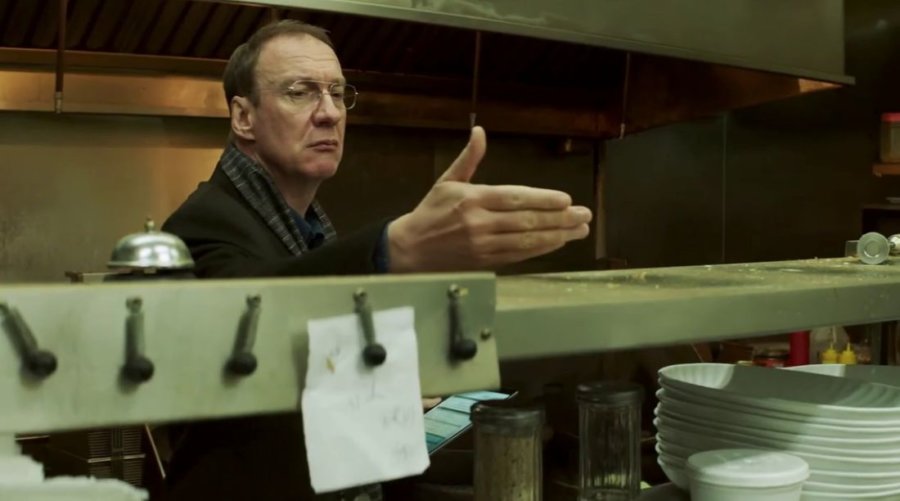
In my 2015 review of Caryn Waechter’s drama The Sisterhood of Night, I wrote:
Jeez…adolescence was traumatic enough before the internet and advent of cyber-bullying (yes, I’m that old). Unfortunately (and perversely), it’s become much easier for the perpetrators and that much tougher on the victims. Your tormentors no longer have to hang out after school, bundled up for inclement weather, waiting for you to finish with chess club so they can stomp on your glasses (or worse). Now, they can chill out in the comfort of their parent’s basement, cloaked in anonymity, as they harass, denigrate, flame, impersonate, or stalk ‘til the cows come home (with virtual impunity).
As ephemeral as one’s “reputation” is to begin with, we live in an era where “it” hangs by the slenderest thread: a mere keystroke or the press of a “send” button can annihilate it. What is a “reputation” anyway? (If you say it’s an album by Taylor Swift…to the moon).
Well, according to our friends at Merriam-Webster:
rep·u·ta·tion | \ ˌre-pyə-ˈtā-shən
Definition of reputation
1a: overall quality or character as seen or judged by people in general
b: recognition by other people of some characteristic or ability // has the reputation of being clever
2: a place in public esteem or regard: good name // trying to protect his reputation
If I read that correctly, a “reputation” is at once objective and subjective; as “esteem”, “regard” and “character” is largely determined as “seen or judged by people in general”. “Reputation” is a key theme of the latest film from esteemed (ahem) Canadian writer-director Atom Egoyan (The Adjuster, Exotica, The Sweet Hereafter, Felicia’s Journey).
Guest of Honour focuses on the mercurial relationship between a father (David Thewlis) and his daughter (Laysla De Oliveira). The story of their relationship unfolds in classic Egoyan fashion, which is to say that it unravels slowly and deliberately in a non-linear construct.
As the film opens, Jim (dad) has died. His daughter Veronica meets with the priest (Luke Wilson) who will be conducting the service. As Jim was never an active member of his congregation, the priest gently presses Veronica for a glimpse into his life and character. Of course, this venerable setup (as old as Citizen Kane) telegraphs “Flashbacks Ahead!”
Turns out dad was nothing, if not quirky. A failed restaurateur-turned-health inspector (yes-that’s too perfect), Jim, who lost his wife to cancer when Veronica was a young girl, is a brooding widower who spends his spare time lovingly caring for his…pet rabbit (you could say that “rabbit’s foot” is this film’s “Rosebud”).
Back to reputation. In reviewing her father’s life, Veronica is also telling her own story to the priest (or is it a confession?). We learn she is a high school music teacher; or rather, she used to be until something happened. Or did it happen? At any rate, her reputation suffered (I am avoiding spoilers).
Whether this “something” happened or didn’t happen, Veronica, for reasons known only to herself (and to be revealed by film’s end) takes full responsibility, citing that she abused her position of power as a teacher (again…which she may or may not have done).
In case we can’t connect the dots, Jim, acting as a concerned father, seizes an opportunity to use his position of power (i.e. the “power” vested in him as a health inspector to affect the reputation of a restaurant) to restore Veronica’s reputation.
If this is beginning to sound contrived and heavy-handed…It pains me to report it is.
I found the first half intriguing, but after hard-to-buy reveals and a silly penultimate scene (possibly inspired by Francis Veber’s 1998 social satire Le Diner de Cons) I stopped caring about the characters (fatal in a character study). To be fair, viewers less familiar with the director’s oeuvre may be more forgiving; my expectations were high.
It pains me because Egoyan is a filmmaker I have a great deal of respect for. For most of the 90s, few directors could touch him when it came to emotionally shattering, deeply affecting dramas about the secrets we keep and the lies we tell (to ourselves, as well as to those we love) – all were intelligently written, sensitively directed, and beautifully acted.
When it comes to brooding, David Thewlis is unsurpassed. Despite the shortcomings of the film, this is his most compelling turn since his 1993 breakout role in Mike Leigh’s Naked. That said (through no fault of his) Thewlis’ inscrutable, officious, and fastidious character feels anachronistic; less believable in 21st Century Canada and more at home in one of the anti-totalitarian films made behind the Iron Curtain in the 60s and 70s (Jim would be The Petty Bureaucrat). Alas, Thewlis is the best thing about Guest of Honour. Still, I look forward to Egoyan’s next project. After all, the man has a reputation to uphold.
“Guest of Honour” is currently available for home screening via Kino Now.
Previous reviews with related themes:
More reviews at Den of Cinema
—Dennis Hartley